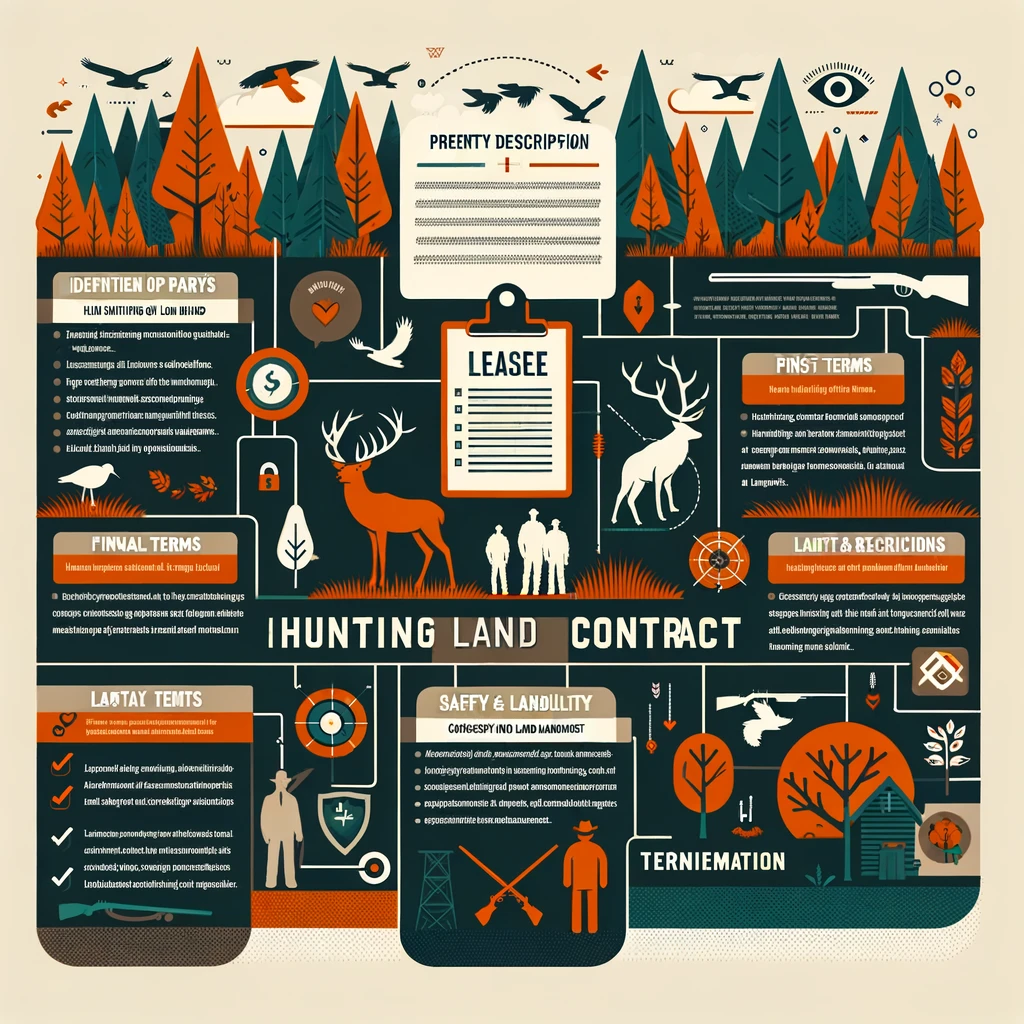Crafting a Hunting Land Lease Contract: A Detailed Guide for Landowners and Hunters
In the realm of outdoor recreation and land management, hunting land leases represent a critical agreement between landowners and hunters, ensuring the ethical, sustainable, and regulated use of private lands for hunting. A well-structured hunting land lease contract safeguards the interests of both parties while promoting conservation efforts and respect for wildlife. This guide offers an in-depth look into creating a hunting land lease contract, incorporating general practices and highlighting authoritative resources for enhanced credibility.

Understanding Hunting Land Lease Contracts
A hunting land lease contract is a legally binding document that outlines the terms and conditions under which hunters can access and use a landowner's property for hunting purposes. These contracts specify details such as the duration of the lease, types of game that can be hunted, and any restrictions or rules that hunters must follow.
Key Components of a Hunting Land Lease Contract
Identification of Parties: Clearly state the names and contact information of the landowner and the lessee(s).
Description of the Leased Property: Provide a detailed description of the property being leased, including boundary lines and specific areas where hunting is permitted or prohibited.
Lease Term: Specify the start and end dates of the lease period, including any options for renewal.
Financial Terms: Outline the lease payment structure, including the amount, payment schedule, and any security deposit required.
Hunting Rights and Restrictions: Detail the types of hunting allowed, any species-specific regulations, and the number of hunters permitted on the property at one time.
Safety and Liability: Include clauses related to safety requirements, liability waivers, and insurance coverage to protect both the landowner and the hunters.
Conservation and Land Management: Address any conservation practices or land management efforts that the lessee is expected to follow or contribute to.
Termination Conditions: Define the conditions under which the lease can be terminated by either party.
Legal Considerations
Compliance with Local and State Laws: Ensure the contract adheres to local and state wildlife regulations and hunting seasons. Consulting resources such as your state's Department of Natural Resources (DNR) or Fish and Wildlife Service can provide up-to-date legal requirements.
Liability and Insurance: Address liability issues and ensure that both parties have appropriate insurance coverage. The National Agricultural Law Center offers insights into legal aspects and liability concerns of hunting leases.
Best Practices for Drafting a Hunting Land Lease Contract
Consult with Legal Professionals: Before finalizing the contract, seek advice from a lawyer experienced in real estate or environmental law to ensure the agreement complies with all legal standards and adequately protects your interests.
Clear Communication: Use straightforward and clear language to avoid misunderstandings. Clearly defined terms will help prevent disputes and ensure both parties have the same expectations.
Site Visits and Inspections: Encourage pre-lease site visits and periodic inspections to ensure compliance with the lease terms and address any potential issues early on.
Enhancing the Hunting Lease Experience
Promoting Ethical Hunting Practices: Encourage lessees to adhere to ethical hunting practices and respect for wildlife. Resources like the Boone and Crockett Club's Fair Chase Statement can provide guidelines.
Building Strong Relationships: Establishing a positive relationship between the landowner and the hunters can lead to long-term leasing arrangements and mutual respect for the property and wildlife.

Create & Review Your Contracts 10x Quality and Ease
Lawyer-level AI handles all your contract needs, with real lawyers providing safeguarding support

Conclusion
Creating a comprehensive hunting land lease contract is crucial for managing hunting activities on private land responsibly. By incorporating clear terms, legal considerations, and best practices into your contract, you can create a mutually beneficial arrangement that respects the rights of landowners and hunters alike, promotes wildlife conservation, and ensures the sustainable use of natural resources.
For further exploration and resources, landowners and hunters are encouraged to consult authoritative sources such as state wildlife agencies, legal advisors specializing in land use and wildlife law, and conservation organizations to ensure their hunting land lease agreements are effective, ethical, and legally sound.

